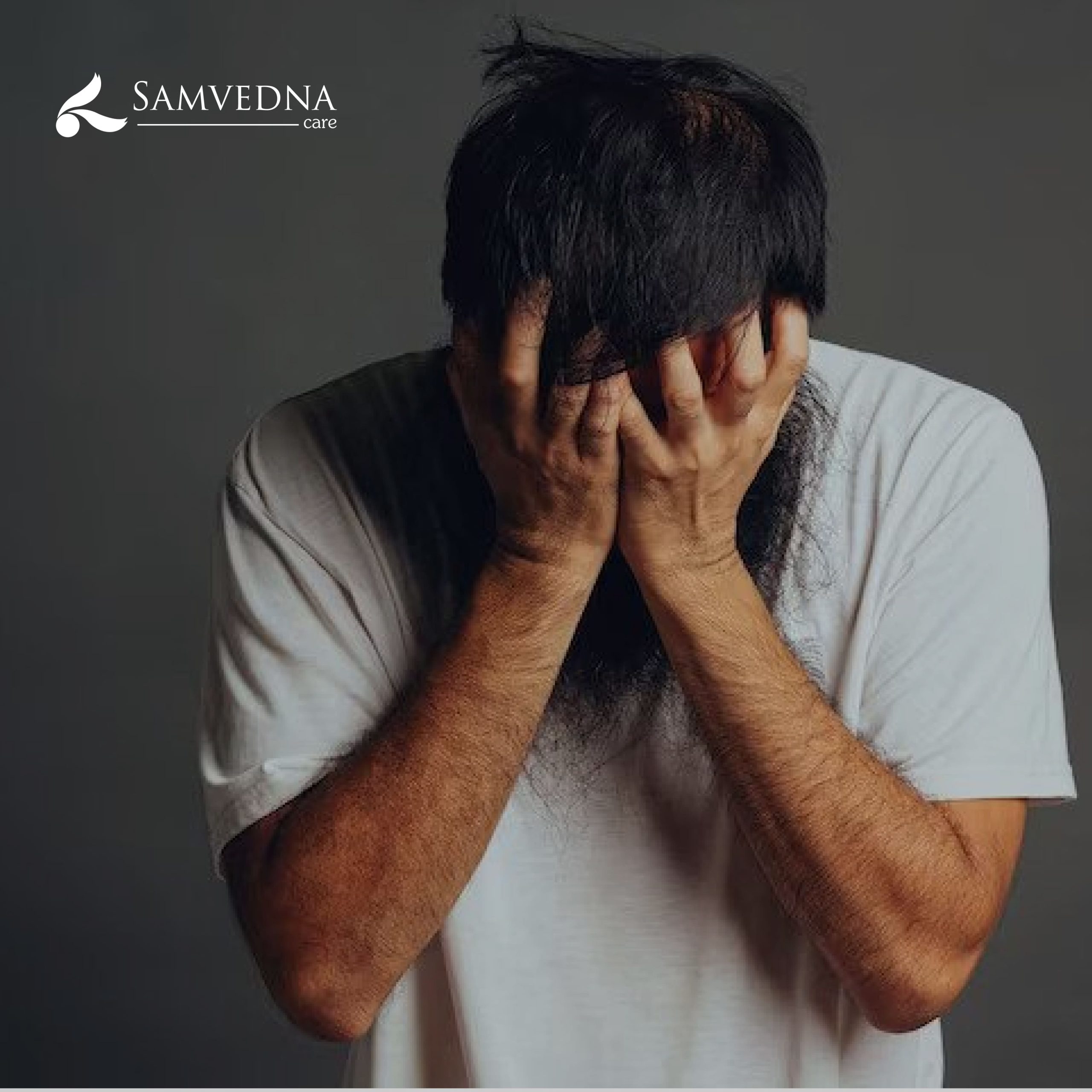Contact Us




Depression is a common yet serious mental health condition that affects millions of people worldwide. While it is natural to feel sad or down at times, depression just goes beyond these feelings, where it makes one feel persistently sad, hopeless, and uninterested in things that happened to interest earlier. The early signs of it and immediate steps towards treatment will definitely lead to improvements in well-being, thus, recovery will be quicker. If you think that you or someone you love might be suffering from depression, then it is important to know what to do next. On that note, Samvedna Care stands as a leading mental health and well-being care service provider since 2014.
In this blog, we will talk about the first steps that one can do in case of suspected depression. We discuss the need for professional advice, including exploring “what does a psychiatrist do for depression”
Symptoms of Depression
The first step to deal with possible depression is to identify it by its signs and symptoms. Depression can manifest itself in different ways, and it is important to know that it is not just sadness. These symptoms can include:
If you recognize several of these symptoms in yourself or someone you know, it’s important to take the next steps and seek support.
Reach Out to Someone You Trust
Depression can make you feel isolated and alone, but it’s essential to remember that you are not. Reaching out to a trusted friend, family member, or colleague can provide emotional support. Talking about how you feel can offer relief, and those close to you may offer insights or suggestions that you hadn’t considered.
Don’t be afraid to be honest about your feelings, even if you’re unsure of how to explain them. Simply expressing that you feel “off” or not like yourself can open the door to a supportive conversation. The people in your life care about you and may help you take further steps toward treatment.
It’s Okay to Seek Help!
One of the most important steps in addressing depression is understanding that it’s okay to ask for help. Depression is a medical condition, not a sign of weakness or failure. Just like physical illnesses, mental health conditions require treatment and care.
Acknowledging that you might need professional help is a big step forward. You wouldn’t hesitate to visit a doctor if you had a persistent cough or fever, so don’t hesitate to reach out to a mental health professional if you’re experiencing symptoms of depression.
Talk to a Mental Health Professional
Once you suspect that you may be dealing with depression, the next step is seeking professional help. This could be in the form of therapy, counseling, or psychiatric treatment. If you’re wondering, “what does a psychiatrist do for depression?”, it’s important to understand the role they play in mental health care.
At Samvedna Care, we provide comprehensive support for individuals dealing with depression and other mental health conditions. Our team includes psychiatrists, psychologists, and counselors who are experienced in diagnosing and treating mental health conditions. Our approach integrates therapy, counseling, and medical intervention when needed. A psychiatrist at Samvedna Care is equipped to offer both psychotherapy (talk therapy) and, if necessary, prescribe medication to help manage depression symptoms.
What sets Samvedna Care apart is our personalized treatment plans. Psychiatrists work closely with patients to assess the severity of their depression and create a plan that may include a combination of therapy, medication, and lifestyle changes to foster recovery. Whether through individual therapy sessions, group counseling, or family support, Samvedna Care offers a safe and supportive environment for individuals to manage their mental health journey.
Final Thoughts: You Don’t Have to Do This Alone
When you suspect depression, the first steps may feel overwhelming, but acknowledging the problem is the first step toward recovery. Depression is treatable, and with the right support, including professional help, therapy, and possibly medication, it is possible to manage symptoms and regain a sense of well-being.
Start by reaching out, seeking help, and taking care of your mental health—because it matters just as much as your physical health.
Check your mental wellbeing here and get a complimentary consultation with our team.